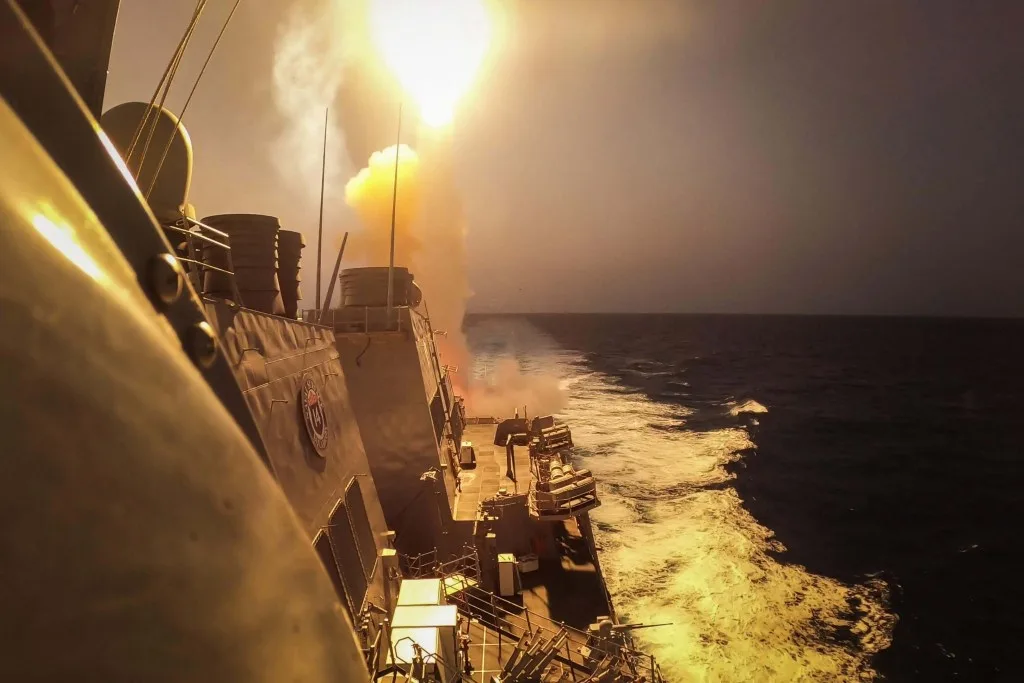Shibhaljazeera Net | Red Sea | Shipping
The Italian Institute for International Political Studies (ISPI) confirmed that the crisis of Western deterrence in the Red Sea is increasingly escalating, as security challenges have intensified following the maritime attacks carried out by the Sana’a government forces in support of Gaza since October 2023. Despite the efforts of multinational maritime coalitions, including Western military operations, these measures have failed to reduce the Houthis’ offensive capabilities.
The institute explained in an analytical report published on its website that the Houthis targeted Western maritime traffic in the Red Sea in solidarity with Gaza following the events of October 7. Maritime traffic has not returned to normal levels, and despite the American, British, and European alliances, such as Operation “Aspidis,” shipping volumes are still more than halved compared to the period before the crisis.
The report indicated that “the shifting power balances in the Red Sea since the first decade of the 21st century have led to new dynamics in the global system.”
It added that the events of October 7 and the war between Israel and Hamas have significantly raised the level of competition in the Red Sea, with Houthi attacks on shipping continuing, leading to a significant contraction in shipping traffic.
The report confirmed that Western countries, whose ships and fleets have been targeted in the Red Sea, have been unable to stop the Houthi threats. These countries continue to face challenges in assessing this multifaceted threat, amidst the absence of an effective deterrence strategy for the Houthis so far.
The report noted that the Houthis’ use of a variety of weapons, including anti-ship missiles and drones, has increased the complexity of the situation, especially as the geographical risk area has expanded to include the Gulf of Aden.
It further explained that the military initiatives launched by Western countries, such as the “Prosperity Guardian” mission led by the U.S. and the European Union’s “Aspidis” operation, have not achieved the desired success in weakening the Houthis’ offensive capabilities since January 2024, indicating a weakness in Western deterrence.
The report emphasized that the “deterrence concept,” traditionally developed by states against other states, now faces new challenges with the Houthis as a non-state actor. It pointed out that the Houthis’ threats include missiles, drones, unmanned ships, and kidnapping operations, all of which have confused the Western defense system.
Furthermore, the report discusses the geopolitical changes in the Red Sea, where the influence of Iran, Russia, and China is growing, complicating the situation for Western countries. These developments have led to the formation of new dynamics in international relations, putting Western nations in a difficult position in the face of ongoing maritime threats.
The report calls for a “reevaluation of Western deterrence strategies to address non-state armed actors like the Houthis.”
